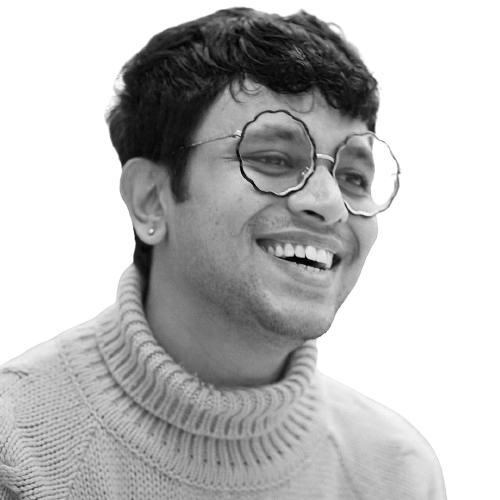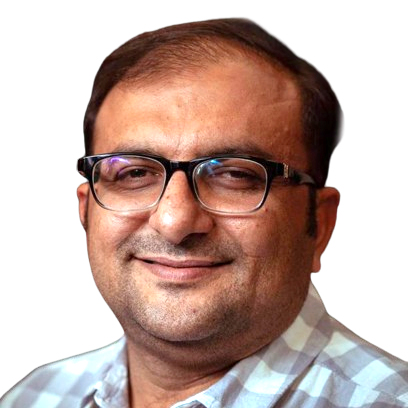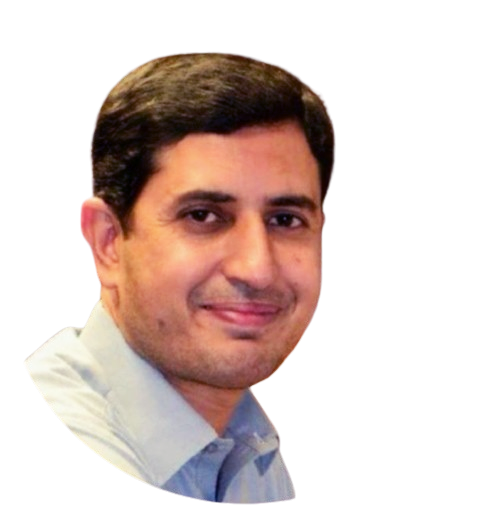- Web Desk
- Apr 07, 2024
Facts matter, especially now
The eighth International Fact-Checking Day was marked around the world on April 2, 2024, with fact-checking and investigative media outlets celebrating their commendable work, as well as cross-border collaborations; still, misinformation and disinformation are nowhere near to being adequately curbed despite global efforts at combating this menace — and Pakistan is no exception.
While I refrain from using the term “fake news” here, primarily because the phrase has been bastardised by politicians, who use it to silence criticism, and by common people ostriching in the face of bitter realities, the rot unfortunately runs deep. Among the reasons why misinformation and disinformation go viral is the fact that they trigger emotions — whether it is due to political, religious or cultural beliefs — making people feel the urge to obsessively share it ahead, thereby reaching hundreds of thousands, if not millions, before any action can be taken. And this makes it harder to fight dubious content that ends up shaping individual and collective thought.
Truth often does take time to come to light; investigations run for weeks, sources, subjects, and officials are hesitant to provide comments, and research is hard to access and is often frustratingly restricted by paywalls. Not to forget that there’s a significant dearth of fact-checkers and fact-checking outlets in Pakistan; for example, there is only one local signatory of the International Fact-Checking Network (IFCN) that also partners with Meta under the platform’s Third-Party Fact-Checking (3PFC) Program in Pakistan.
What this means is that articles debunking misinformation and disinformation, when eventually published, do not get even a percent of the traction that viral content does and, thus, is not enough to mitigate the harm that may have already been caused.
I’ve lost count of the number of people I’ve encountered — especially change leaders, influencers, and opinion makers — whose arguments on key issues are flawed due to one or more of their contentions being based on a falsehood they believed when it went viral. Such discussions consequently become tiresome because one has to first challenge their assertion (which they do not appreciate), break down the (il)logical flow of thought, and state the facts. Scarcely have I seen a conversation like this end positively. And even if the person making the dubious claim understands what one is trying to say, i.e., explaining that they are misguided, a common reaction is yelling “Conspiracy!” (Western, Illuminati, Indian, Jewish or otherwise) aimed at “destroying” the Pakistani culture and values, unity or the so-called “family system”.
Take the case of vaccine-related misinformation and disinformation; Pakistanis are often seen regurgitating the false claim that vaccines, whether for polio or Covid-19, would cause impotence or were equipped with microchips, among other conspiracies. Some people actively tried to avoid getting the jab after their loved ones shared desi totkay (homemade remedies) often obsessively shared via WhatsApp to fight the virus.
Take another case: the rampant transphobia being peddled by YouTubers, politicians, and even celebrities. Rights activists and the transgender community itself have observed that the ongoing campaign — sometimes bordering on malinformation (i.e., differing in intent and aiming to cause harm) — features the same talking points as are used by right-wing elements in the developed countries, such as the US and the UK, and has, it appears, led to violence against members of the indigenous khwajasira community. For context, a deadly stabbing and an almost mob-lynching have already occurred just in the holy month of Ramzan 2024.
In both of the examples above, the disinformation is based on unscientific rhetoric and consciously triggers personal beliefs for effective dissemination. And in both, claims have the potential to directly or indirectly lead to fatal outcomes.
The 2024 Pakistan elections, too, saw dozens of false and misleading claims that had to be investigated in a timely fashion.
Leaving the responsibility of adequately tackling care of misinformation and disinformation to social media companies is too fancy a dream. While Meta — which owns Facebook and Instagram — and TikTok have their own third-party fact-checking programmes, Twitter, now known as X, has Community Notes, which are routinely abused by partisan users as the feature relies on up- and down-voting. What all of them lack, however, is local context and understanding. As mentioned above, there are too few resources in Pakistan dedicated to dealing with a barrage of dubious and suspicious content churned out on a daily basis.
On the other hand, handing over authorities a monopoly over controlling information isn’t a great idea either, for there’s always a possibility of misuse or abuse of the law, as well as the fact that extensive time and resources are required for the training and sensitisation of staff that is shuffled around more frequently than not. Legislation, if any, may also be too broad or too narrow to counter misinformation and disinformation. Plus, government initiatives would, as seen in the past, oscillate according to the party in power and where it falls on the political spectrum; therefore, it can’t be trusted to be impartial.
So how do we tackle this if organisations are not sufficient and the government is unreliable? Empower people to investigate on their own, equip them with skills to question and verify whatever they come across, and encourage them to pause and ponder before spreading anything suspicious further.
There’s also an urgent need for more independent fact-checking initiatives, though they need to be transparent about their processes and have proper codes of principles unlike many “fact-checking” accounts that have popped up on social media over the past few years. Mainstream media outlets — many of which, unfortunately, are one-person shows owned by business magnates or people with too much money to spend and who do not understand journalism and who prioritise profits over authentic work — can’t be tasked to do this either because, honestly, why would they fact-check themselves?
The bottomline is that we need to realise how widespread misinformation and disinformation is and how it impacts all facets of our lives. Not only is it wrong and unethical but it can turn deadly as well. And this is why it needs to be urgently deal with. After all, science, facts, and truth can save us.
READ: OpenAI to launch anti-disinformation tools for elections 2024 – HUM News (humenglish.com)




